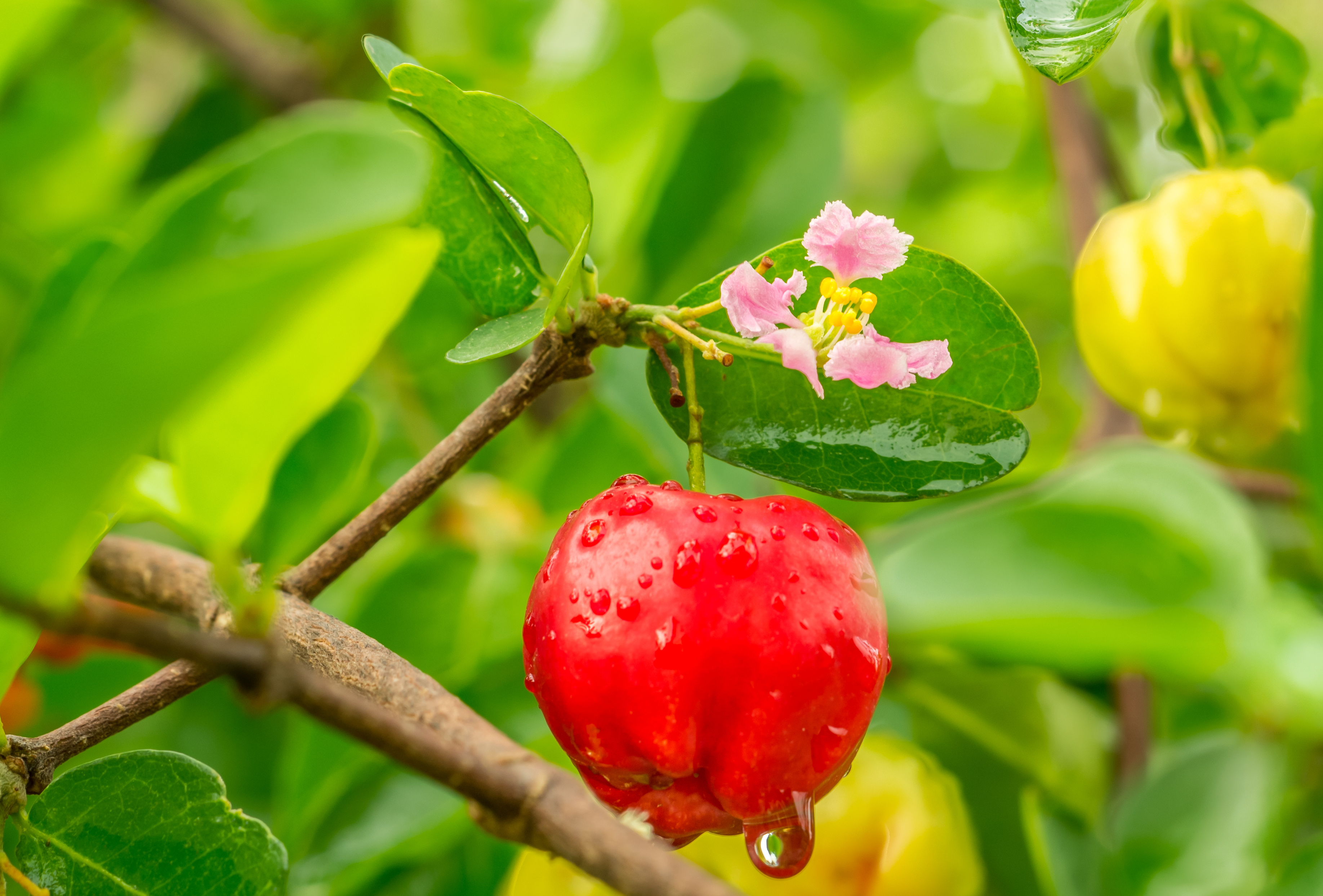ACEROLA: the Barbados Cherry

New Parma / september-october 2009
Let’s continue on our journey among the ‘super foods’. After discovering the Açai’s potential in the last issue of New Parma, we now look at the characteristics of a fruit which has one of the highest quantities of vitamin C, as well as many other nutrients: Acerola, also has a valuable part to play in anti-aging skin-care products.
The Acerola shrub (malpighiacea, genus malpighia, species glabra) grows to 5 m. with fruit 1,2 cm. in diameter. The Acerola is known in Europe as the ‘Barbados cherry’ because of the deep red colour of its fruit. It grows wild in the Antilles and Amazonia.
It is sweet-tasting, soft and juicy. The juice is as common in Brasil as orange juice is in North America. The amount of vitamin C contained in the Acerola varies according to the harvesting season, the climate and the location. Only the ‘Camu Camu’ has a higher vitamin C content. Let’s compare Acerola with oranges: oranges have 500 to 4.000 ppm; wild Acerola has from 16.000 to 172.000 ppm (parts per million, i.e. grams of active ingredient diluted in a thousand litres of water). Five grams contain 116 mgs. of vitamin C, 28 times more than a lemon. The fruit also contains carotene, thiamine, riboflavin, niacin, proteins and mineral salts, especially iron, calcium and phosphorous, malic acid, fructose, fibre and lipids.
A comparative analysis carried out on a dozen of the most vitamin-rich fruits, including Acerola, showed that Acerola had the highest antioxidant potency, with a TEAC (Trolox Equivalent Antioxidant Activity) of 53.2 points.
Because of its high vitamin content the fruit is increasingly attracting the attention of conventional and alternative medicine. The most recent research in cosmetology indicates that vitamin C is, in fact, a potent antioxidant; cosmetics increasingly contain extracts of Acerola for skin care and treatment for skin ageing.
ACEROLA APPLICATIONS: astringent, prevention of infection, stimulant for the immune system, a block for radical damage in cells; prevention of influenza and colds, treatment of lung problems like bronchitis, sinusitis and other respiratory conditions, liver disorders and viral infections.
Vitamin C is not synthesized by our organism and is taken as a supplement. Vitamin C is necessary for collagen formation, hormone synthesis, and tissue regeneration, folic acid synthesis to fight anaemia, prevention of nitrosamine formation (cancerogenous) and it helps with iron absorption.
Acerola, and Dog rose, are essential for smokers as vitamin C is destroyed by cigarette smoke.
Excellent for drinks, milk-shakes, added to yogurt, ice-cream and toppings, and the personalization of recipies to your taste and imagination. Available in tablet form or lyophilized.
More info: https://behealthy.today/acerola-cherry-content-benefits/
